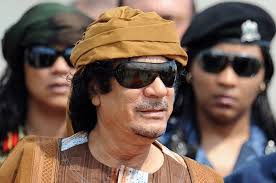
TRIPOLI (Reuters) – In a cluster of luxury residences that survived Tripoli’s battles almost unscathed, a self-declared defender of Libya’s revolution has set up base as one of three claimants to the country’s premiership.
A handful of guards and two armoured white SUVs are stationed at Khalifa Ghwell’s compound, and loyalists control surrounding roads with checkpoints and patrols.
Few consider Ghwell a serious contender for power. But in recent weeks the ex-prime minister has bolstered his presence at his base four km from the heart of the capital, in an increasingly brazen challenge aimed at undermining a U.N.-backed government that was meant to shepherd Libya towards peace.
Six years after the NATO-backed uprising that toppled Muammar Gaddafi’s over 40-year rule, Ghwell’s reappearance and his ability to mobilise powerful armed support have set the capital on edge, leading to some unusually violent fighting.
They expose Libya’s deep fractures and how little traction Western efforts have gained in stabilising the oil-producing desert state.
Libya remains a byword for chaos. The North African country has more than doubled oil output to 700,000 barrels per day in recent months, though this is well below the more than 1.6 million bpd it pumped before Libya’s 2011 uprising.
That recovery and gains against Islamic State are fragile. The south and west are criss-crossed with smuggler routes, and armed brigades skirmish in turf wars on the streets of Tripoli.
In the capital, Prime Minister Fayez Seraj’s U.N.-endorsed Government of National Accord (GNA) has drifted half-formed, largely unable to provide services to despairing citizens or exert authority even on its doorstep, as Libya’s neighbours and Western states scramble to salvage their plan. Continued…












